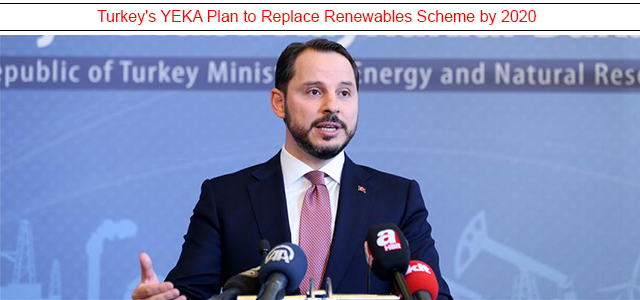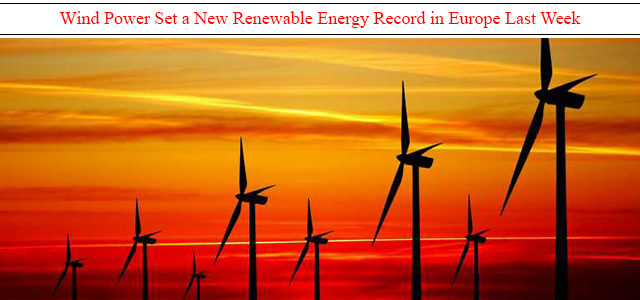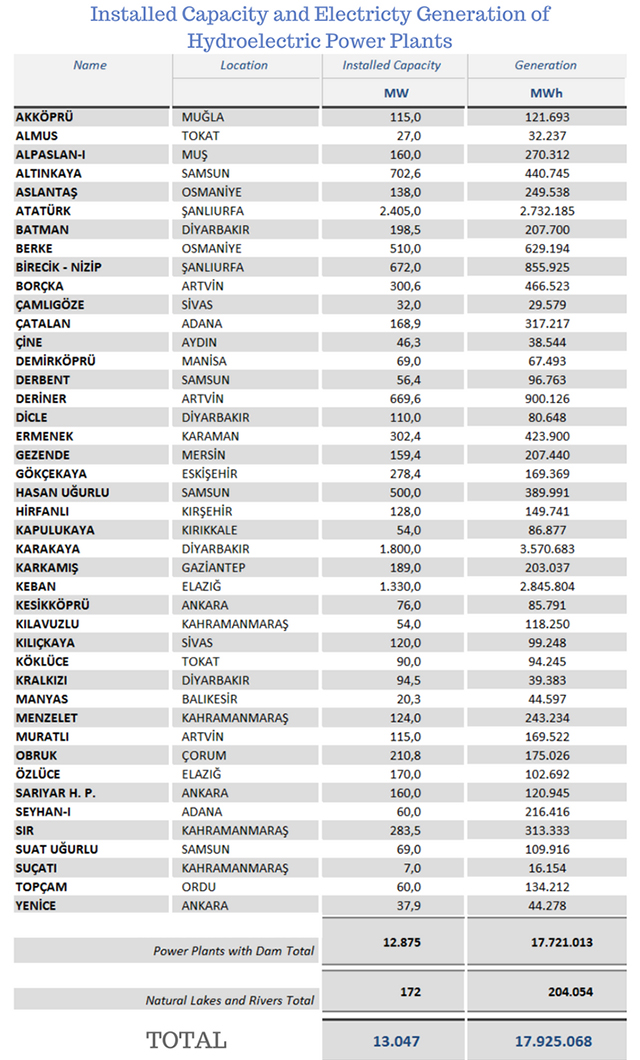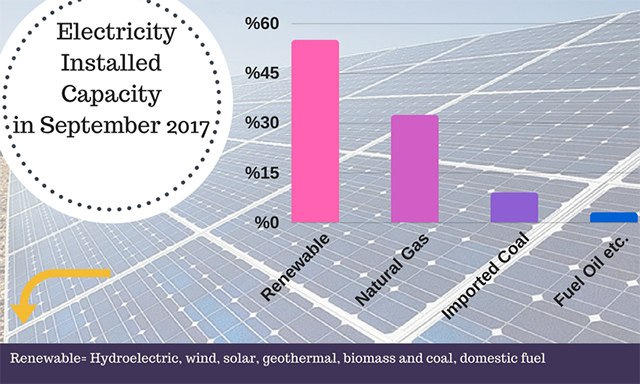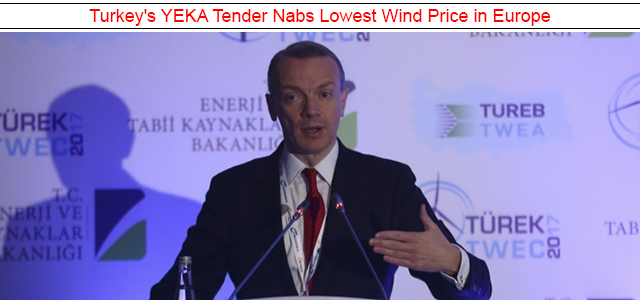
Turkey's YEKA tender nabs lowest wind price in Europe - WindEurope hopeful for other rounds of YEKA tenders following Turkey's successful debut auction in August, WindEurope CEO.
Turkey has obtained the most competitive price for wind energy in Europe through its Renewable Energy Resources Zone Areas (YEKA) auction in August, WindEurope CEO Giles Dickson said on Wednesday in Ankara.
During the opening speech of the 6th Turkish Wind Energy Congress Dickson explained that Turkey installed over 500 megawatts of new capacity this year.
"Turkey had a very successful YEKDEM [Turkish Renewable Energy Resources Support Mechanism] auction in July and had a very successful first YEKA auction in August. We are looking forward and hope to have other rounds of YEKA auctions," Dickson said.
YEKDEM was launched in 2011 to use the country's vast clean energy resources efficiently and to support their development.
A Kalyon - Turkerler - Siemens Gamesa consortium won the first 1,000-megawatt wind tender offered by YEKA in August.
The offered price of $3.48 per kilowatt-hour of electricity production in the country's first 1,000-megawatt wind tender on Thursday, Aug. 3, broke a record in Turkey as the lowest cost of electricity per hour accepted from wind power generation, surpassing the previous record of $10.30 per kilowatt-hour.
According to Dickson, many of WindEurope members have already invested in the Turkish market while many more are also interested in investments. He asserted that the most effective way to bring further investments to Turkey is through transparency and promoting the auction system up until 2023.
He warned of the importance of keeping a close eye on the prices in the market as very low prices can have a negative effect on the numbers of players that can enter and sustain trade in the sector.
"It is excellent that Turkey have achieved such low prices in the YEKA auction. Just one observation from our early experience in Europe would be to resist the temptation to try to push those prices too low. Prices sound great when the cost of wind power is coming down, but how many companies can play in the market when prices are negative," he said.
What will that do to market competition if there are fewer players in the market," he added.
"As a member of the European wind industry, we are determined and committed to continue to work with you. We see you as part of a family. We are not WindEU, we are WindEurope, and we are delighted to count Turkey as one of our successful markets at the moment," he concluded.
